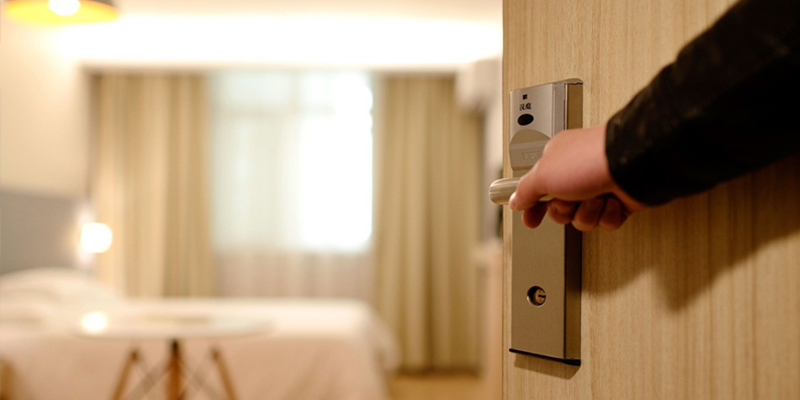Are robotized hotels the future of the American hotel factory in the post Covid-19 scenario?
When Chinese e-commerce giant Ali Baba’s Future Group made news for employing Artificial Intelligence (AI) in its Hangzhou hotel FlyZoo back in 2018, it was looked like a promotional gimmick at best. Who would want to check in with a robot or get served their favorite cocktail by a robotic arm? Fast forward to 2020, where consumers are choosing to book a vacation rental (Airbnb is 80% back to pre-pandemic levels and filed for an IPO) instead of a cleaner hotel due to less human contact risk. After all, hotel brands are using robots to clean rooms and deliver amenities to rooms Perhaps it has become the best possible option for a safe stay in the pandemic era. In other historically labor intensive service industries, such as retail banking (Citibank: ATMs), ticketing (Ticketmaster: buy and print at home) and more recently restaurants (Dominos: food delivery), incumbents have automated services and improved service and even created new revenue streams. Airbnb’s mostly virtual “superhost” and keyless arrival is perhaps another case study that demonstrates its possible to deliver more personalized service.
Back to Alibaba and Chinese hotels: The Future Group’s venture was not just about robotized service personnel but about employing AI right from the moment a customer decides to take the trip. At the time of booking, guests can choose exactly the kind of room they want, customized beyond imagination, using Ali Baba’s Fliggy app. Facial recognition technology would enable self-check-ins; all that the guest needs to do is walk into the elevator which will stop by itself on the right floor. No magnetic keys/cards needed either to unlock the door, as the software recognizes all the guests assigned to a room, including children, and automatically opens it when one approaches it. Inside the room, all commands including ordering of food can be done with a vocal assistant software. In the hotel restaurant too, interaction is minimal, as the robot can provide customized food and drinks. It doesn’t end there; in case the guest fancies any of the décor items in the hotel, they can buy it online through the FlyZoo purchase application. Check out is also done online through Alipay.
It’s all about the efficiency of the service and the consistency of service, because the robots are not disturbed by human moods. Sometimes, we say we are not in the mood, but the system and the robot will always be in the mood.
-Andy Wang, CEO of Alibaba Future Hotel Management
China had always welcomed technology and innovation, and most of the urban crowd had already adopted automation in their homes, which they expect in a hotel as well, to feel at home. It’s of no surprise that Alibaba is the largest single investor in SenseTime; an AI start-up known for its facial recognition technology”.Multiple international hotel groups based in Hangzhou had tied up with Ali Baba for introducing similar technology in their own hotels. Also, Ali Baba is not the only company in China to implement AI, its competitor The Baidu DuerOs made use of AI as well.
In the wake of the pandemic, more Chinese companies have come forward with virus-specific AI technology for contactless delivery, spraying disinfectants, and performing basic diagnostic functions, not just in the hospitality industry but in the medical field as well. Companies manufacturing robots and drones for the hospitality industry have now started supplying them for hospitals as well.
While it might all seem like a futuristic dream come true, the core of the concept is that in hospitality, personalized service becomes possible only because of data mining of the customers. The client’s preferences from previous trips make sure that no two guests are treated alike, to a degree human interaction cannot achieve. However, the average Chinese traveler is ok with their data being mined. A recent survey revealed that 97% of Chinese travelers were willing to share at least one piece of personal information with companies that serve them.
Wide-scale business transformation using technology is possible – and should be executed – by boutique and traditional hotel chains. Technological innovation in structure and ideology is the key to surviving COVID-19 as we – according to Laura Wolinsky – do the “slow crawl back to normalcy for traditional hotels.
But the result? A lower fixed cost structure and more revenue streams generated from charging premiums for self-service and big data. According to research conducted by Starfleet Research in partnership with Oracle Hospitality, 89 percentage of hoteliers agree that AI significantly reduces operating costs in the customer support function. Should the hotel industry’s workforce and labor unions be concerned about job loss, at a time when over 8 million or half its workforce has been laid off or furloughed? It might seem like hospitality employees would find automation a potential threat to their jobs, but in reality, hotel executives, department heads and supervisors can actually devote their time to solving complex issues instead of being stuck in mundane and repetitive tasks.
From the standpoint of guests, faster response times and better accuracy would mean more customer satisfaction, which is something hotels could charge additional fees for providing and customize for its highest value guests. Most guest queries are resolvable by a bot and through chat. Also, the bot can handle multiple queries unlike a human employee and is available 24/7. A human employee only needs to monitor the process and step in if the need arises. Even the most automated of hotels would always have a certain number of human personnel as well, in the event of a guest requiring human assistance. For international travelers, who have to deal with language issues at the front desk or on the hotel phone, software can come to the rescue.
There is a window of opportunity for industry leaders to invest in people, reinvent operating models and modernize the people side of the hospitality industry.
It remains to be seen whether, in the face of local government interventions such as New York City whose Mayor has legislated rehiring of previous employees and bowed to the demands made by unions, whether automation can help revive the hotel industry, and provide hotel owners, especially small businesses, the opportunity to re-open their properties and generate the cash flows required to cover their mortgages.
Undoubtedly, the future of hospitality is automation, and the smarter the technology, the better chances of a hotel surviving the pandemic. Rather, AI would seems like a necessity, not a choice, in the immediate post-Covid era.
In addition, innovation is going to be the key driver for the survival and sustainability of hotels in the hospitality industry. The pioneering consultant and advisor to leading hotels across the globe, Alexander Mirza, has already presented us with the key stats on innovation in technology, branding, marketing, customization, and environmental considerations concerning the hotel sector.
Want to know how an end-to-end robotized or AI-enabled hotel experience in the future would be? One of the pioneers in the hospitality industry, Alexander Mirza, envisages how robots will guide us from travel planning to conducting events to managing hospitality.



